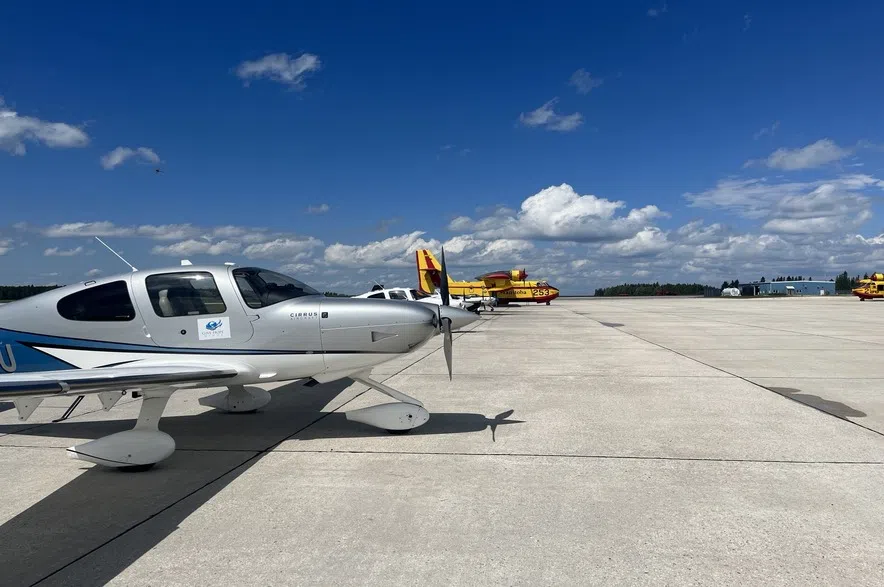A one-of-a-kind charity touched down in Regina this past week.
Hope Air hosted its Give Hope Wings event at the Regina Airport on Wednesday, bringing together pilots and patients to tell their stories and to raise awareness about the organization.
“We exist to bridge the distance between home and hospital for Canadians in need,” said Jon Collins, chief development officer for Hope Air.
“That means that if you live in a remote, small or rural part of Saskatchewan, or anywhere in the country, it’s unlikely that when you need specialized care that (it is) going to be provided in your home community… We exist to get people where they need to go.”
Hope Air was founded in 1986 to help ensure that people in need can focus on their health instead of logistics.
READ MORE:
- ‘Heart breaks’: Advocates say new disability benefit still leaves people in poverty
- Sask. families are getting two new Ronald McDonald Homes
- ‘The need is great:’ Carmichael Outreach excited for new warming space
“We’ll fly you out of your home community to (an) urban center for care,” Collins said during an appearance on The Evan Bray Show.
“We have an accommodations program – so we’ll put you up overnight if you’re staying outside of the hospital – a meals program where we feed you while you’re staying overnight, and a transportation program that takes you from the airport to the hotel.”
According to Collins, the charity has seen a significant increase in demand in recent years. In 2022, the charity provided 10,000 travel arrangements for people in need. That number more than doubled to 25,000 in 2023. So far this year, Collins said the charity has seen just under 20,000 bookings, with half the year still to come.
“We were quiet for the first handful of years of our existence, and then in recent years things have exploded,” said Collins.
“In part because we’re clearing surgical and other appointment backlogs coming out of COVID, in part because the travel sector is stabilizing and people are more comfortable travelling again, and then in part because of the impact of inflation, we saw a massive increase in demand for our services.”
Collins outlined the organization has three primary eligibility criteria. The need to travel by more than three hours by car, a confirmed medical appointment covered by the patient’s provincial health plan, and an income threshold. Collins said the group has an online application form as well as a client care support team that potential patients can call to confirm they’re eligible.
The majority of flights are booked with commercial airlines, but Collins said about one per cent of flights come through Hope Air’s volunteer pilot program.
“These are people that own their own light aircraft. They’ve agreed to donate their time (and) most of their operating expenses, and they go out and pick people up in community airports that are very close to home and fly them directly to the care that they need,” explained Collins.
Collins specified that the charity is not an air ambulance service for emergencies, and is focused primarily on specialty care.
“Oftentimes, if somebody is in somewhere truly remote and they have an air ambulance trip into a hospital, they may not plan for their trip home, so oftentimes we’ll send people back after they recover,” said Collins.
“When you speak to the families and you hear about what their alternatives are, what they would do without support, how much debt they’d be in or the fact that they’d forgo treatment completely, it really opens your eyes to just how important the work is.”











